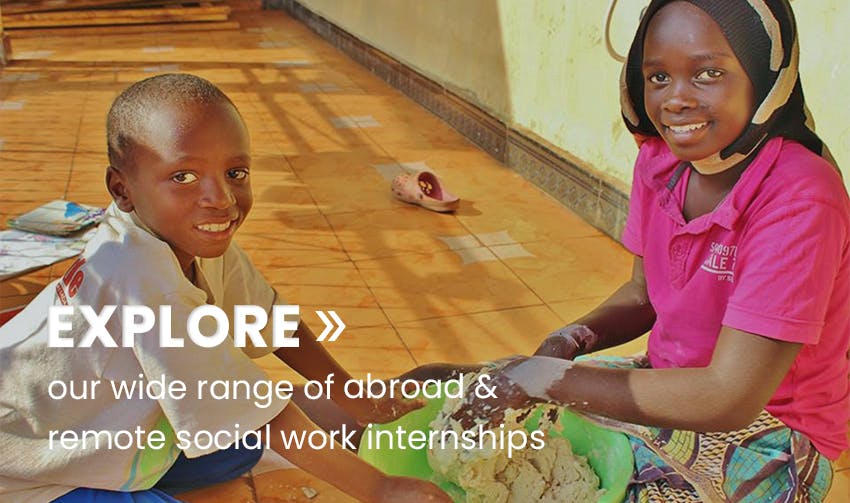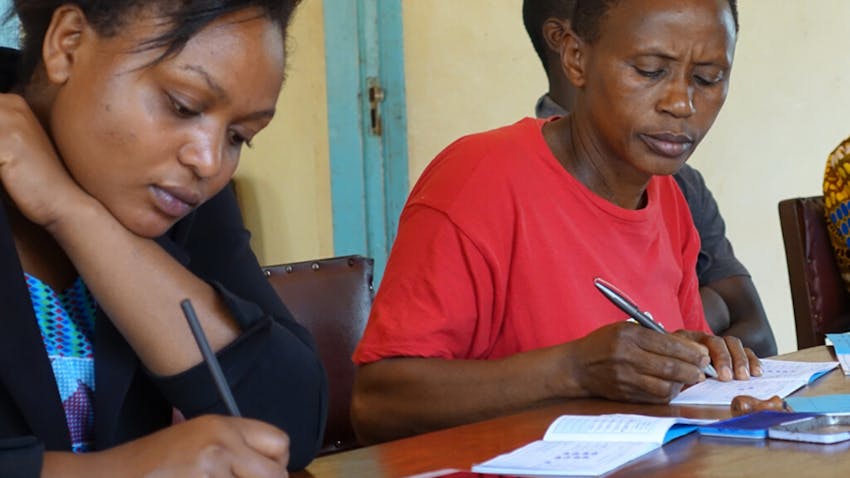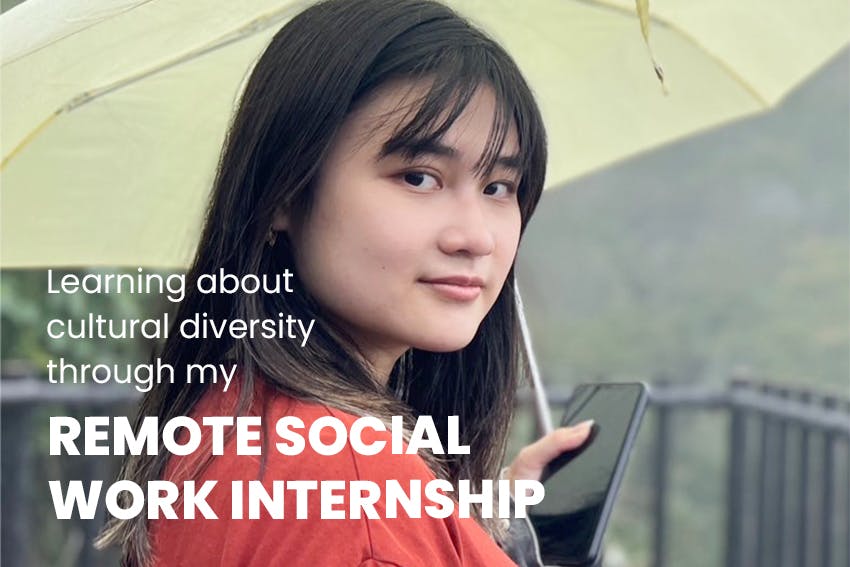
Naomi is an Indonesian student, studying Psychology at Temple University, Japan. She is passionate about helping vulnerable populations and marginalized groups around the world, so participated in Intern Abroad HQ’s remote Social Work internship, hosted out of Tanzania, to further her real-world knowledge and understanding. Keep reading to learn more about how the internship enabled Naomi to learn first-hand, from experts and mentors. Not to mention, the interesting cultural experiences Naomi encountered along the way!
Hi Naomi! Can you share with others what motivated you to choose our remote internship?
Sure! Right now, I am in my last semesters of my undergraduate degree. Outside of school, I chose to do this internship while I’m also actively searching for a job. The internship serves as an investment, since it supports my job search, builds upon my studies, and contributes to my general employability. This semester is indeed very challenging but I want to graduate as soon as possible. Being able to graduate earlier means that I will save tuition money.
Also, as an undergraduate student. I have never worked full-time, I have limited travel experience, and limited exposure to a range of other cultures. I have also never worked in an NGO before. However, the experience I achieved from this internship - by learning directly from organization founders - has opened my eyes to various social problems, such as poverty, drug addiction, domestic abuse, and so on. I learned a lot about how social workers do surveys which enable them to make decisions about which clients to take on. I was also able to meet clients virtually and learn new perspectives. This opportunity was eye-opening.
Can you tell us more about your internship host organization in Tanzania and how it’s involved with social work?
The Social Work organization I was placed with for this remote internship works with clients who face various problems. It was heartbreaking to learn more about the challenges in Tanzania, which social workers aim to address. For example, I learned that in some places in Tanzania, people are struggling to be able to afford clean and safe water. Also, people living in poverty lack access to education and medical treatment. I initially had to research information to familiarize myself with many challenges (e.g., poverty). As time progressed, I got to shadow my supervisors in virtual sessions where I got to meet clients and the knowledge that I gained from the research came in very handy as it helped me to be more prepared.
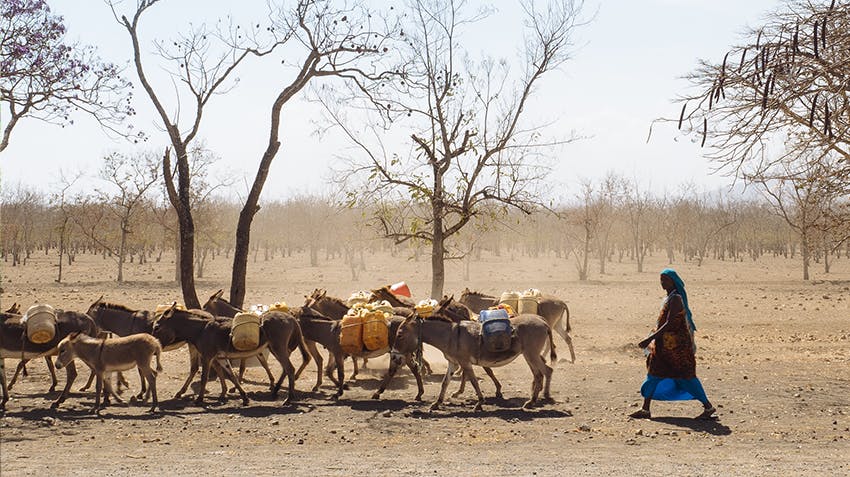
What was it like getting started with this remote Social Work internship?
My Social Work internship, with Intern Abroad HQ, was hosted out of Tanzania. A week before the start of this internship, I met with one of the founders of my internship host organization. It was interesting to receive an introductory orientation about the cultural background, history, and current affairs of Tanzania. I felt comfortable talking to the founders. They were very open and relaxed.
Once my internship had commenced, I started in the first week by learning more about the culture of Tanzania, from two supervisors (who are physically in Tanzania). It was interesting to learn about the new cultures of a country in a continent that I have never been to. Furthermore, it was even more interesting to hear the unique point of view from my supervisors. One of them was from Germany originally, so she shared insights into the cultural shock that she’d personally experienced.
My country of origin is Indonesia, so it was also interesting to learn about cultural similarities and differences (between my own culture, and that of Tanzania). As I am living in Japan and going to an American university, I also compared my own culture to Japanese, Tanzanian, American, and German culture - I am grateful that this remote internship platform provided me an opportunity to enhance my cultural intelligence around the world. By exposing myself to different cultures, I hope to gain more understanding, awareness, and sensitivity toward differences around the world.
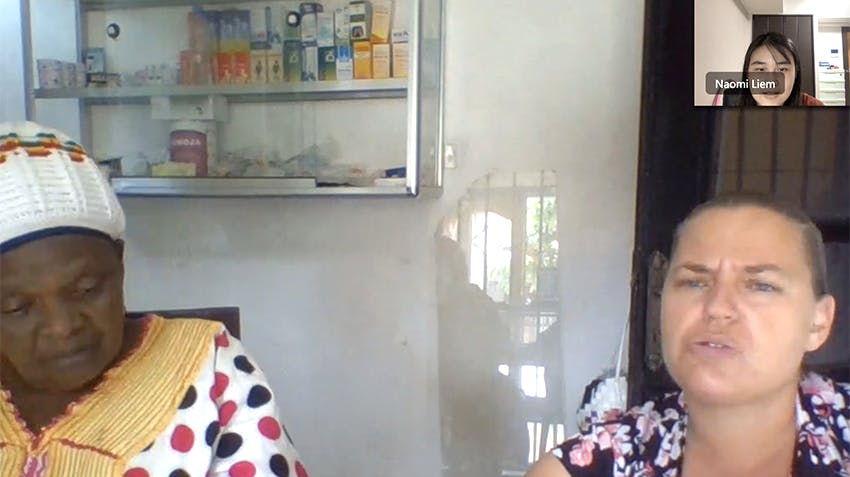
What challenges, if any, did you face during the internship?
The biggest communication challenge was the language barrier. For example, I met a client with one of her children virtually. Although I cannot speak swahili, the language barrier was overcome, as my supervisor acted as a translator between the client and I.
It was also fortunate that we used non-verbal communication, which was interesting in itself. I could of course smile and wave at the client’s child during the meeting, which gave me a huge sense of contentment. I also liked how people often showed a big smile with their teeth showing. This type of non-verbal communication appeals to me and encourages me to smile more.
In retrospect, this online meeting (despite the language barrier) was a favorite outcome of the internship experience. I understand that opening up to a total stranger can be very challenging. I felt honored that the client was able to share her challenging situation and her dream at the same time. At the end of the session, the client expressed her happiness at being able to connect and share her burdens by talking with both the supervisor and I.
Due to the nature of the online internship, sometimes there was a problem with the internet connection. However, we’d usually catch up later on things if needed.
An aspect of the internship tasks which overcame any language barriers included the use of visual aids. For example, I provided a visual aid (after researching domestic violence) and received good feedback for this. I was flattered and felt happy!
What were your key outcomes from this internship opportunity?
I feel more empowered to be successful in my field. By having more understanding of the cultures and challenges of the places that I have never been to, I am hoping that I will be able to see things from various perspectives. This would help me since I am a psychology student.
My most significant learning point would be to understand the real-world situations that can happen due to various circumstances. For example, poverty can lead to domestic violence. Social problems are very challenging to overcome. They take time, and we have to approach the problems as soon as possible. We should have enough understanding and a good level of sensitivity towards the problems. Furthermore, we should help the victims and give understanding to the targeted people.
In the future, I would like to work voluntarily for NGOs around the world to help people. I hope that I can at least be a listener to their problems, just like what I did when I met the client during this internship. I would love to gain a deeper understanding of different cultures and nations and have first-hand experience of being physically there to help people as well.
My advice to other interns, who are thinking about joining this program, or working in social work in the future, would be to listen to the explanations about the situations and conditions of people who live there and how cultures, norms, and laws shape the attitudes, behaviors, and cognitions of the people.

How can I get started?
Our step-by-step guide on how it works provides you with more information on how to get started. The process is user friendly - just submit your application to get the ball rolling. It doesn’t cost anything to apply and won’t take more than 5 minutes. However, your formal expression of interest provides the foundation for us to help you take the next steps.
